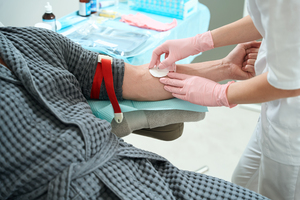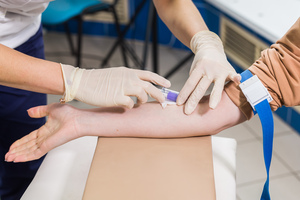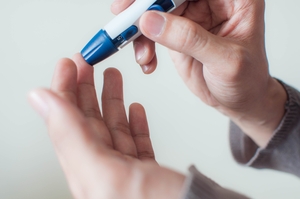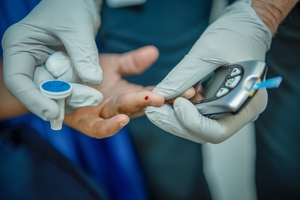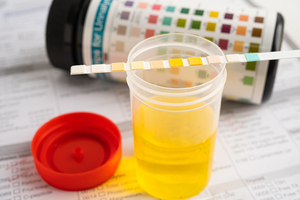Glucose test
in Maryland
Own a clinic? Add your location.
Help patients book appointments with you on Solv. It's free!
18 instant-book locations

AllCare Primary & Immediate Care, Canton
AllCare Primary & Immediate Care
TODAY
View more
Allcare Primary & Immediate Care, Towson
Allcare Primary & Immediate Care

AllCare Primary & Immediate Care, Columbia
AllCare Primary & Immediate Care
TODAY
View more
AllCare Primary & Immediate Care, Ellicott City
AllCare Primary & Immediate Care
TODAY
View more
AllCare Primary & Immediate Care, Maple Lawn (Fulton)
AllCare Primary & Immediate Care
TODAY
View more
Allcare Primary & Immediate Care, Annapolis
Allcare Primary & Immediate Care
TODAY
View more
Fast Track Urgent Care, Silver Spring
Fast Track Urgent Care
TODAY
View more
Allcare Primary & Immediate Care, College Park
Allcare Primary & Immediate Care
TODAY
View more
Access Now Urgent Care, Wheaton
Access Now Urgent Care

AllCare Primary & Immediate Care, Silver Spring
AllCare Primary & Immediate Care

Fast Track Urgent Care, Kensington
Fast Track Urgent Care

The Convenient Clinic
The Convenient Clinic

Allcare Primary & Immediate Care, Shady Grove
Allcare Primary & Immediate Care

AllCare Primary & Immediate Care, Bethesda
AllCare Primary & Immediate Care

AllCare Primary & Immediate Care, North Bethesda
AllCare Primary & Immediate Care

AllCare Primary & Immediate Care, Van Ness
AllCare Primary & Immediate Care

AllCare Primary & Immediate Care, H Street
AllCare Primary & Immediate Care

AllCare Primary & Immediate Care, Washington DC - Wisconsin Ave
AllCare Primary & Immediate Care

Medics USA, Columbia Heights Urgent Care
Medics USA

Medics USA, Columbia Heights Primary Care
Medics USA
Own a clinic? Add your location.
Help patients book appointments with you on Solv. It's free!
Maryland Glucose Tests
Diabetes is a dangerous condition that affects 32 million people in the United States. Because diabetes doesn't always cause symptoms, especially in its early stages, it's critical to have your blood glucose levels checked if you're at risk.
Patients aged 45 and over should get their glucose levels checked once a year, according to the American Diabetes Association. If you're under 45 and have a lot of risk factors, you should be checked. Obesity, having a diabetic close family member, and being physically active less than three times a week are all risk factors for diabetes. Having gestational diabetes or prediabetes raises your chances of developing diabetes later in life. Some ethnic groups are also
During the first trimester, pregnant women with risk factors for type 2 diabetes should be examined for gestational diabetes. Being overweight, being over the age of 35, having a history of gestational diabetes, or belonging to an ethnic group with a high risk of diabetes are all risk factors. Diabetes during pregnancy, if left untreated, can lead to complications such as hypertension, cesarean birth, and even baby mortality.
Prediabetes is a condition in which blood sugar levels are above normal but not high enough to be classified as diabetes. According to the Centers for Disease Control and Prevention, one out of every three persons in the United States has prediabetes, and many of them are unaware of it. Many persons with prediabetes will acquire type 2 diabetes within ten years if they do not receive treatment. Prediabetes, on the other hand, can be rectified via dietary and lifestyle adjustments. Eating a nutritious diet and exercising regularly can help you regulate your blood sugar. If you're overweight, start losing weight right away. Eat plenty of fruits and vegetables and avoid sweets and refined carbohydrates like white bread and pasta.
Glucose Test FAQs
How much does a glucose test cost?
The cost of a blood glucose test varies depending on a number of factors, including the location of the test and the type of test performed. The cost of a glucose test starts at roughly $10. If you have any questions regarding the type of test you'll need or how much it'll cost, ask your doctor's office when you make your appointment.
Does insurance cover glucose testing?
Glucose testing is covered by many health insurance providers, however there are certain restrictions. A glucose test, for example, may be covered by your insurer once or twice a year. If you have any questions about what your insurance plan covers, contact your insurance carrier or look up your policy paperwork on their website.
What is glucose in a blood test?
Glucose is a form of sugar found in the blood of humans and other animals that serves as one of the body's primary fuel sources. You acquire glucose from the food you eat, or your body can create it from other sources if necessary. Glucose is released into the bloodstream after you eat and goes throughout your body. Insulin is a hormone that aids in the transport of glucose into cells, where it can be used for energy.
What is a glucose test?
A glucose test is a basic blood test that determines the amount of glucose in your blood. Too much or too little glucose in the blood can create medical problems and be an indication of a more serious illness. High blood glucose levels, or hyperglycemia, for example, can be an indication of diabetes, which is connected to issues like heart disease, stroke, kidney disease, eye problems, skin diseases, slow wound healing, and more.
How long should I fast before a glucose test?
Fasting for at least eight hours before a glucose test is usually required. Your blood sugar will be higher if you eat or drink anything before a glucose test, and the test may not be correct. You can consume water but not anything else before a glucose test. It's a good idea to book your appointment early in the morning so you don't have to go without food for the rest of the day.
How do I read glucose test results?
The concentration of glucose in the blood is measured in milligrams per deciliter, or mg/dL, which is a unit of measurement. A normal range for a fasting glucose test is 70 to 99 mg/dL. Prediabetes can be detected in a range of 100 to 125 mg/dL. You may have diabetes if your fasting blood glucose level is more than 125 mg/dL.
How long does it take to get glucose test results?
The time it takes to receive your glucose test results may vary depending on where you have it done. Depending on the doctor's office or testing facility, results may be available right away. However, your blood may be sent to a lab for examination in some situations, and the results may take 1-2 days to get back.
How is glucose testing done?
Glucose testing is a quick and painless technique that takes only a few minutes to complete. A little sample of blood will be drawn from a vein in your arm by your doctor. The needle may cause a minor sting, but it should not be severe. Following your blood test, a bandage may be put to your arm to prevent bleeding.
How can I book a glucose test through Solv?
It's simple to schedule a glucose test with Solv. Simply start entering "glucose" into our website's search field. A "glucose test" option will display. Then, either type in your city or ZIP code, or choose to utilize your present location. When you click the search button, a list of providers near you and available appointment times will appear. Choose a time and a location that are suitable for you.
Can I do at-home glucose testing?
A blood sugar meter can be used to test your glucose at home; however, home glucose testing are not intended to diagnose diabetes. Instead, it is recommended that people with diabetes monitor their blood sugar levels on a frequent basis to avoid diabetes complications. If you need a glucose test to diagnose diabetes, arrange an appointment with a doctor who can interpret any odd results and, if necessary, help you design a treatment plan.

Updated on Mar 25, 2025
Solv has strict sourcing guidelines and relies on peer-reviewed studies, academic research institutions, and medical associations. We avoid using tertiary references.
Related Searches
DOT Exam in Maryland
Ear Wax Removal in Maryland
Physical Exam in Maryland
Sports Physicals in Maryland
A1C Test in Maryland
Allergy Testing in Maryland
Basic Metabolic Panel in Maryland
CMP Test in Maryland
COVID-19 Antibody Test in Maryland
Diabetes Test in Maryland
Diagnostic Test in Maryland
Glucose Test in Maryland
H Pylori Test in Maryland
Hepatitis test in Maryland
Mono Test in Maryland
Pregnancy Test in Maryland
RSV Test in Maryland
STD Testing in Maryland
Strep Test in Maryland
TB Test in Maryland
Thyroid Test in Maryland
Vitamin D Test in Maryland
Aetna Urgent Care
Blue Cross Blue Shield Urgent Care
Cigna Urgent Care
COVID-19
Flu
United Health Urgent Care
» All services in MarylandEveryday Healthcare, Simplified
Expert advice to help you live your best life
